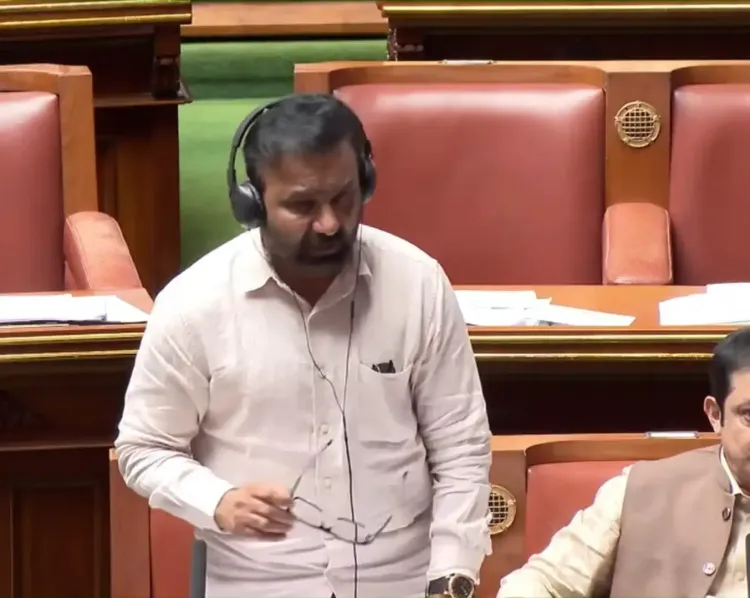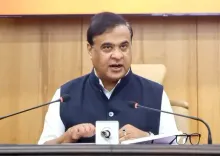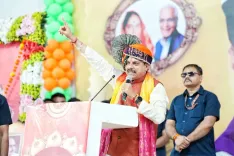Has Karnataka Assembly Passed a Bill for Gig Workers' Social Security?

Synopsis
Key Takeaways
- Social security and health safety provisions for gig workers.
- Creation of a Gig Workers’ Welfare Board.
- Mandatory registration for both gig workers and aggregators.
- Dispute resolution mechanisms established.
- Projections indicate growth in gig work opportunities.
Bengaluru, Aug 19 (NationPress) The Karnataka Assembly has officially approved a bill aimed at safeguarding the rights of gig workers, imposing responsibilities on aggregators or platforms regarding social security, including occupational health and safety.
The Karnataka Platform-Based Gig Workers’ Social Security and Welfare Bill was presented in the Assembly, and after thorough discussions, it was successfully passed. The primary goal is to provide social security for gig workers throughout the state.
Among the key features of the bill are the establishment of a dispute resolution mechanism, the creation of a Gig Workers’ Welfare Board, the development of a welfare fund, the registration of platform-based gig workers with the board, and the mandatory registration of aggregators. This legislation also aims to offer reasonable protection to gig workers.
The board will consist of four representatives from gig workers, representatives from aggregators, and two members from civil society. Its duties will include managing registrations and facilitating agreements between aggregators and gig workers to avoid arbitrary terminations in disputes.
State Labour Minister Santosh Lad, upon introducing the bill, remarked, “The Karnataka Platform-Based Gig Workers’ Social Security and Welfare Bill is being introduced for the first time in our state. Gig workers are those engaged by online platforms for services like goods delivery and other activities. This includes sectors such as food and grocery delivery, logistics, e-commerce, business-to-business, business-to-customer, health services, travel, hospitality, and more.
“According to Section 2E, a gig worker is defined as an individual who performs work or engages in a work arrangement that results in payment at a specified rate, as outlined in a contract, with work sourced through a platform in the services listed. Those who conduct transactions via these platforms are classified as gig workers, contributing to what is commonly known as the gig economy. This bill is being introduced to regulate this emerging concept,” he explained.
“Currently, e-commerce and food delivery services are experiencing rapid growth year after year. A report from NITI Aayog projects that by 2029-30, approximately 23.5 million workers will be employed as gig workers, creating immense opportunities in this field,” Lad stated.
“In Karnataka, around 400,000 individuals are presently working as gig workers, many of whom are engaged in both full-time and part-time roles. Other nations have implemented similar regulations: Spain has the Riders’ Law, Singapore has the Platform Workers’ Law, and similar laws exist in Korea, Indonesia, and Malaysia. This bill is being introduced to align with these frameworks and provide legal support for gig workers,” the minister added.
Addressing the challenges faced by these workers, he noted, “Gig workers, particularly those on two-wheelers, are increasingly vulnerable to noise and environmental pollution. I encountered many workers who reported needing to work 18 hours to earn Rs 1,800, completing 25 to 30 deliveries daily amid significant traffic. In Bengaluru, many workers often have to commit 16 hours to earn Rs 1,600.”
“The acceptable CO2 exposure limit is 3.5 liters; however, gig workers inhale nearly 40 liters, according to my information. They are also exposed to high levels of carbon monoxide, which jeopardizes their health. A study from 2018 indicated that an auto driver or gig worker inhales pollution equivalent to smoking 10 cigarettes daily. Even without smoking, they are subjected to this through the air. If someone endures these conditions for 20 years, their future health will be at risk.”
“This is precisely why this bill has been introduced—to ensure social security for gig workers. We engaged with stakeholders, including the IT/BT and Industries ministries, prior to drafting this legislation,” Lad clarified.
He further elaborated, “We will impose a welfare fee ranging from one to five percent. This does not fall under the Industrial Disputes Act, nor does the Minimum Wages Act apply here.”
BJP MLA S. Suresh Kumar endorsed the bill, stating, “In 2019, during my tenure as Labour Minister, I convened discussions with gig workers and officials regarding their interests. This is a commendable move. The gig economy represents the new standard. While protecting gig workers’ rights, the government must also take into account unorganised workers. For instance, in Karnataka, there are 380,000 outsourcing workers, particularly in the Energy Department, serving as station operators, assistants, and gangmen. They lack social security. I propose their inclusion in this bill.”
Deputy Opposition Leader Arvind Bellad also expressed support for the legislation, mentioning, “In 2020, the Central government introduced a similar bill in Parliament. NITI Aayog estimates that by 2029-30, approximately 4.1 percent of the workforce in India—around 25 million—will be gig workers. This represents a significant number. Bihar and Rajasthan have already enacted similar laws, and now our state has followed suit. Consideration must also be given to private sector workers.”






